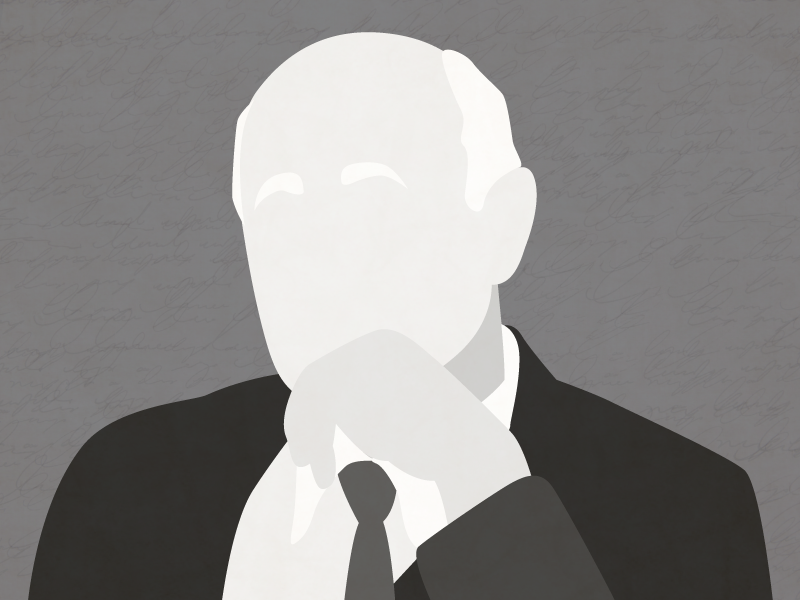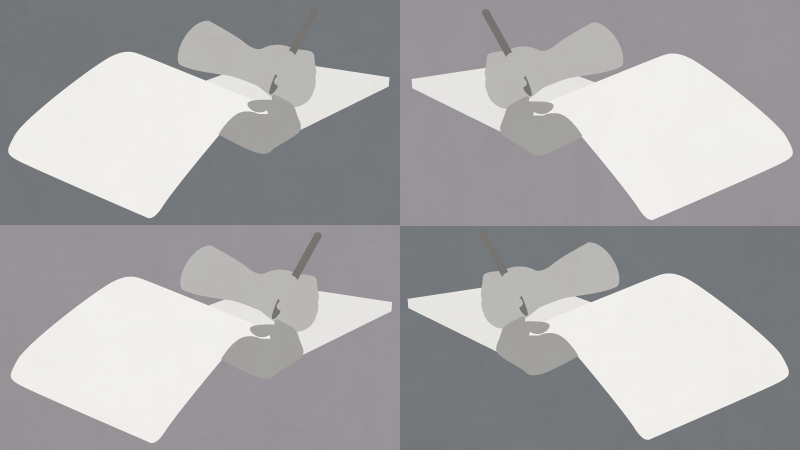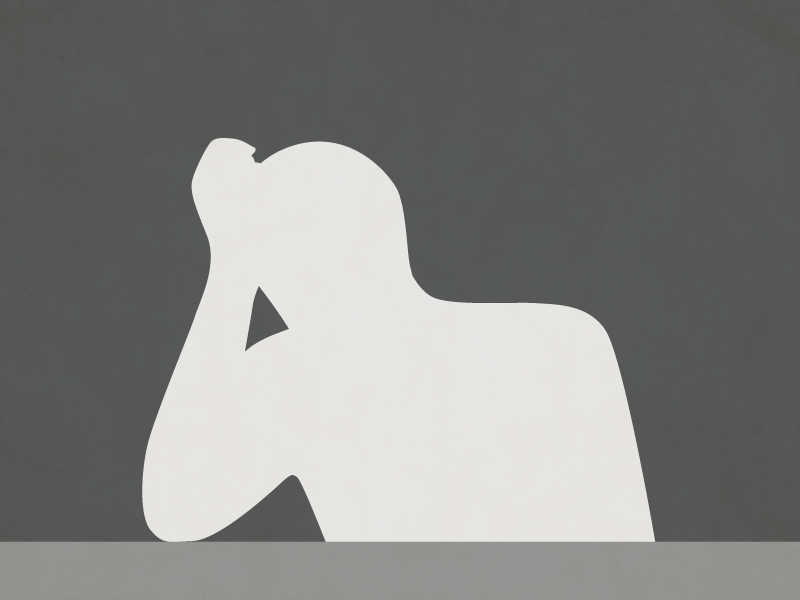We all know that a book can change the shape of history. Think The Communist Manifesto and Introductory Lectures on Psychoanalysis, not to mention the Bible and the Koran. But a book review? How much influence could a book review possibly have?
Judging from Norman Mailer’s review of Norman Podhoretz’s 1967 memoir, Making It, a lot. Serving as a catchall and a coda for the collective judgment of liberal intellectuals of the day, Mailer’s review would help turn Podhoretz against his progressive roots and harness his exceptional energy and intellect on behalf of neoconservatism, a movement that played a role in the election of Ronald Reagan, the two Bushes, and Donald Trump.
Making It is an intellectual memoir written by Podhoretz when he was 37 and the editor-in-chief of the then-influential Jewish quarterly magazine, Commentary. This was the mid-1960s, a time in American life when ideas were taken seriously, when the phrase “New York intellectual,” epitomized by the left-leaning writers for Commentary and Partisan Review (a magazine for which Podhoretz also wrote), carried weight not only in New York but nationwide. The critic Murray Kempton called the writers for these publications “the family,” owing to the homogeneity of their profile (mostly Jewish, acculturated New Yorkers) and the combination of clannishness and rivalry with which they operated. Podhoretz saw himself as part of this family and Making It as both a personal memoir and a contribution to the group’s understanding of itself.
Central to the book is Podhoretz’s assertion that he wanted fame and fortune — to be known and well-published, invited to the best parties, and generously remunerated for his work. What provoked the ire of his peers was that he claimed they wanted the same things. He should have predicted their reaction. “Ambition,” he asserted, “had replaced erotic lust as the dirty little secret of the well-educated American soul.” Airing that dirty little secret was bound to have repercussions.
Read It
Making It by Norman Podhoretz
Podhoretz’s drive for success structures the book. He begins: “One of the longest journeys in the world is the journey from Brooklyn to Manhattan” — i.e., from being a “Jewish slum child” to being a member of the intellectual elite. He starts by recounting his early years when he was taken under the wing of a WASP doyenne who saw in him the potential to be remade into a “facsimile WASP.” She groomed him for Harvard, where he was accepted without adequate funding and so settled for a scholarship to Columbia. There, he became the prize student of Lionel Trilling, the literary critic of English literature who had taken the journey that Podhoretz describes a generation earlier and with a good deal more thoroughness. Trilling was famously the first Jew to get tenure in the English department at Columbia; his appearance, name, and expertise in the British literary tradition made him the epitome of the facsimile WASP. Trilling was also a penetrating mind and a stylistic genius, greatly admired by Podhoretz, who dedicated Making It to him (though Trilling counseled him not to publish it and distanced himself after the fact).
Podhoretz admits to being a brilliant mimic. He could write papers in the style of his teachers, which flattered them and assured his academic success. But he also notes repeatedly that he never entirely shed his origins as a hardscrabble Brooklyn boy, the son of Jewish immigrants who would have preferred him to be a dentist. When he won Columbia’s coveted Kellett Fellowship that sent him for post-graduate study in England, he describes being mocked by his more elegant peers as “Sammy Glick at Oxford.” At Cambridge (not Oxford), he studied with the great F.R. Leavis, who invited him to write for his prestigious journal Scrutiny but eventually counseled him against an academic career. Returning to the States, he concentrated on writing for a more general intellectual audience and had initial success in both the high-brow, left-leaning Partisan Review and the more middle-brow, mainstream New Yorker. Yet in each case, he eventually lost his footing.
Podhoretz enumerates his successes in detail (which many of his critics took to be vulgar and boastful), but he does the same for his failures and setbacks. Indeed, Making It gives us a pattern that would extend beyond the events described in the book: success followed by disappointment and a degree of humiliation. Not only was he viewed as limited by F.R. Leavis, he also was “fired,” as he liked to put it, by the New Yorker. At Commentary, where he was hired after returning from England, he struggled to assert himself against an editorial staff which consistently disagreed with and undermined his ideas. In each case of rebuke or disappointment, he regrouped and found a new avenue for asserting his powers of mind and creativity. He would eventually triumph at Commentary, becoming its youngest editor and making the magazine over in his own image. Likewise, after being trashed by his friends for publishing Making It, he found new friends and, with them, a whole new way of being in society.
But it would be simplistic to see the book as a mere chronicle of success and its challenges — a Sammy Glick-style memoir. For the pattern was internal as well as external. Podhoretz’s early fame was a source of wonder and pride to him but also of guilt and trepidation. With each triumph, he wondered if he was deserving or if he had betrayed some value associated with his background, his Judaism, and his sense of merit. There is a strenuous desire to tell the truth alongside a desire to be original, aesthetically pleasing, and well-liked. He has an acute awareness of these competing loyalties and desires, and the book is a testament to the difficulty attached to the hybrid position of being a Jew studying a Christian literary tradition; an intellectual in a country with a vibrant popular culture and a Horatio Alger-respect for wealth and success; and a poor Brooklyn boy mixing with prominent society figures and occupants of the White House. He explains that his role models are people like Robert Warshow, Elliot Cohen, and Norman Mailer; people who straddled seemingly conflicting positions and worlds, who could find value in both Henry James and Western movies, who could be Jewish and American, who could be serious critics and highly original, creative writers.
Making It is an example, in a different register, of what these role models had done. It mixes erudition with confession, stylistic elegance with unfiltered honesty. The book is written in the first person. Nowadays, there would be nothing noteworthy in this; literary critics often acknowledge their subjective involvement with their subject-matter and weave memoir into their criticism. But at the time, the two genres were entirely distinct. Critics were supposed to be august judges from on high rather than singular, struggling personalities. Trilling, the premier critic of the day, was known for his magisterial “we,” and even when Mailer wrote about himself, he slyly got around the problem by referring to himself in the third person. Podhoretz’s unabashed use of “I” was ahead of its time.
There is much else that is original about the book that went unnoticed if it was not denigrated at the time it appeared: a probing analysis of the joys and agonies of writing; a wonderful apologia for the creativity of all literary genres, even book reviews; an explanation of the role of the editor and what it means to be a good one. Podhoretz also celebrates the delights of American culture at an earlier point than most intellectuals did — certainly earlier than the academy, which had yet to fully accept the field of American Studies. Finally, he addresses the importance of ethnicity which has become so central to the academic curriculum (ironically, now condemned as “identity politics” by neoconservatives).
Reading the book today and noting its many strengths makes the negative response to its publication seem almost perverse. It is shocking to see how uniformly the Partisan Review family excoriated the book. They were a lynch mob of intimates, and they determined what everyone else thought. (When I recently asked my 92-year-old father, a Partisan Review reader in his younger days, about his opinion of Making It, he grimaced, then admitted that he hadn’t read it, only the reviews.)
The unkindest cut came from Norman Mailer, Podhoretz’s closest friend, whose review, published after the others had checked in, stands out for being the most exhaustive and mean-spirited. One has to read it to fully understand how influential it must have been in turning Podhoretz against both his friends and their political position.
In an interview for the Paris Review decades later, Mailer addresses what he did with typical narcissistic bravado:
I feel partly responsible for Podhoretz. He and I were close friends at one point. He wrote a book called Making It, and the book got trashed terribly . . . It was truly ugly. And I hadn’t read it yet — or I’d read the first half of it, which was pretty good. And I witnessed this trashing and said to him, I’m going to write a review. So I read all of the book. And the book betrays itself. The second half is god-awful . . . So I ended up mocking his book, too. And I was pretty cruel. Looking back on it, I was probably too cruel. He went into a depression and stayed there for about a year . . . just didn’t do much. Worked on his magazine and listened to music and hardly saw anyone. And by the end of that time, he’d moved over to the right . . . And so I feel that I’m responsible, to whatever degree, for helping to have shoved him over there. Which is too bad, because he now is paying for his sins on the right by having supported the war in Iraq and he has to live with it — has to live with all the idiocies of the neoconservatives.
The unpalatable nature of this passage needs no explication. It blithely acknowledges wrongdoing and then turns against the wronged ex-friend in a burst of self-righteous grandstanding. It should be added that Mailer’s critique of the second half of the book is inaccurate. As far as I could see, the second half is no different from the first, either in tone or content; it ends, in fact, with a paeon to Mailer (which Mailer, in a gratuitous swipe, criticizes as insipid flattery).
Why, one must ask, would this already prominent writer turn against his less prominent friend? My guess is that Mailer took full stock of the response to Podhoretz’s book among his intellectual peers and decided that it was too costly to give his support, even with silence. But Mailer being Mailer could not simply jump on the bandwagon; he had to be original. After summarizing every bad review the book had received (twice repeating the New Leader’s judgment that Making It is “a matchless 360-page ejaculation”), and after inserting a swipe at the writing (“phrases, sentences, and paragraphs, so unhappy, ill-chosen, and aggressively flatulent that no reviewer with an eye to the cruel could fail to notice”), he proceeds to pass judgment from a new angle. The general view was that Podhoretz had had the audacity and bad taste to extol success and to attribute crude motives to family members. Mailer, who certainly pursued success as wantonly as anyone could, took the opposite tack. He complained that Podhoretz had not gone far enough. A memoir of this kind, he explained, should read like a novel, and Making It lacked narrative drama: the characters were drawn too respectfully; the critique was too tepid. Mailer’s review was an advertisement for his own approach in Advertisement for Myself; it took Podhoretz to task for not writing a similar book. He then used the rest of the review to write his own, much nastier, critique of the family.
It is amazing to me that Mailer’s venomous rant, published in Partisan Review no less, got a pass from the very individuals who found Podhoretz careful, gentle critique insupportable. I can only assume that the people in question feared that a protest against Mailer might result in undesirable retaliation, while a protest against Podhoretz would cost them nothing. Mailer, after all, was cool, his preening verbosity passing as insider playfulness. Podhoretz was earnest, naively candid about his desire for material success and fame. His style went against the grain of the detached, ironical one that the family favored.
I read Mailer’s review disturbed for what it said not only about the nature of friendship within such a group, but about the values of mid-20th-century literary and intellectual culture. It revealed a profound hypocrisy: that it was OK to be self-revelatory in a certain mode a la Mailer, because it covered up some of the more unseemly aspects of the self while boasting about other fashionable vices. It showed a thin-skinnedness on the part of these people when it came to a serious evaluation of motives (Mailer’s evaluation in his review is over-the-top and clownish). Finally, it reflected a snobbism that repudiated their ethnic inheritance, all the more egregious given that the Holocaust had just occurred in Europe (there is almost no mention of this atrocity, as Podhoretz notes, in the pages of Partisan Review during the post-war period).
Read It
Ex-Friends by Norman Podhoretz
If the personal is political, as the ’60s activists used to say, the political is, even more, inherently personal. When a smart, highly sensitive man like Podhoretz is dramatically misread by most everyone he respects, when his dearest friend makes a laughing stock of him in print, is it surprising that he would be driven to separate himself socially and politically from everything such people stand for? If reading Mailer’s review of Making It were not enough to support this claim, one has only to read Podhoretz’s subsequent, much more pointed memoirs, written at intervals afterward: Breaking Ranks (1979) and Ex-Friends (1999). In both, it is clear that he cannot leave the moment of repudiation and mockery by the family behind. In each, he makes a point of providing the kind of dramatic, unflattering portraits that Mailer had taken him to task for not providing in the earlier book. But he also, in the midst of convoluted explanations for his political position that involve the threat of communism and the wrong-headedness of student protests, acknowledges that he misses the intellectual camaraderie that characterized life in the family.
When I interviewed Podhoretz some years ago, I recall being surprised by his statement that George W. Bush was an eloquent speech-maker. Having read Making It, with its beautifully crafted sentences and strenuous attempt to get at the nuance of things, I was mystified by how he could laud a speech of the flat-footed sort that Bush delivered. But that was before I read Mailer’s review. Now I can see how the simpler phrasing and more straightforward, jingoistic ideology might seem refreshing after the vicious verbal pyrotechnics of his ex-friend. Although we know, especially in light of recent political events, that simplicity can carry its own kind of fraudulence and distortion, one can understand why, having suffered the response he did, Podhoretz would find this sort of language superior to the twists and turns of intellectual alienation and evasiveness.
I believe that Making It is a very good book. If it has a fault, it is a lack of humor that connects to an excess of earnestness — a quality that no doubt incited his ironical friends. But it is beautifully written, deeply felt, and serious about exploring the intellectual currents of its age and the more material desires that can accompany high-mindedness. It was castigated because it dared to yoke these together and to embrace in-betweenness in other respects. It was both too mannered on the one hand and too straightforward in its truth-telling on the other — too much of an earlier time and too much of a later one — to appeal to those who should have taken it seriously. •
Images created by Shannon Sands.







